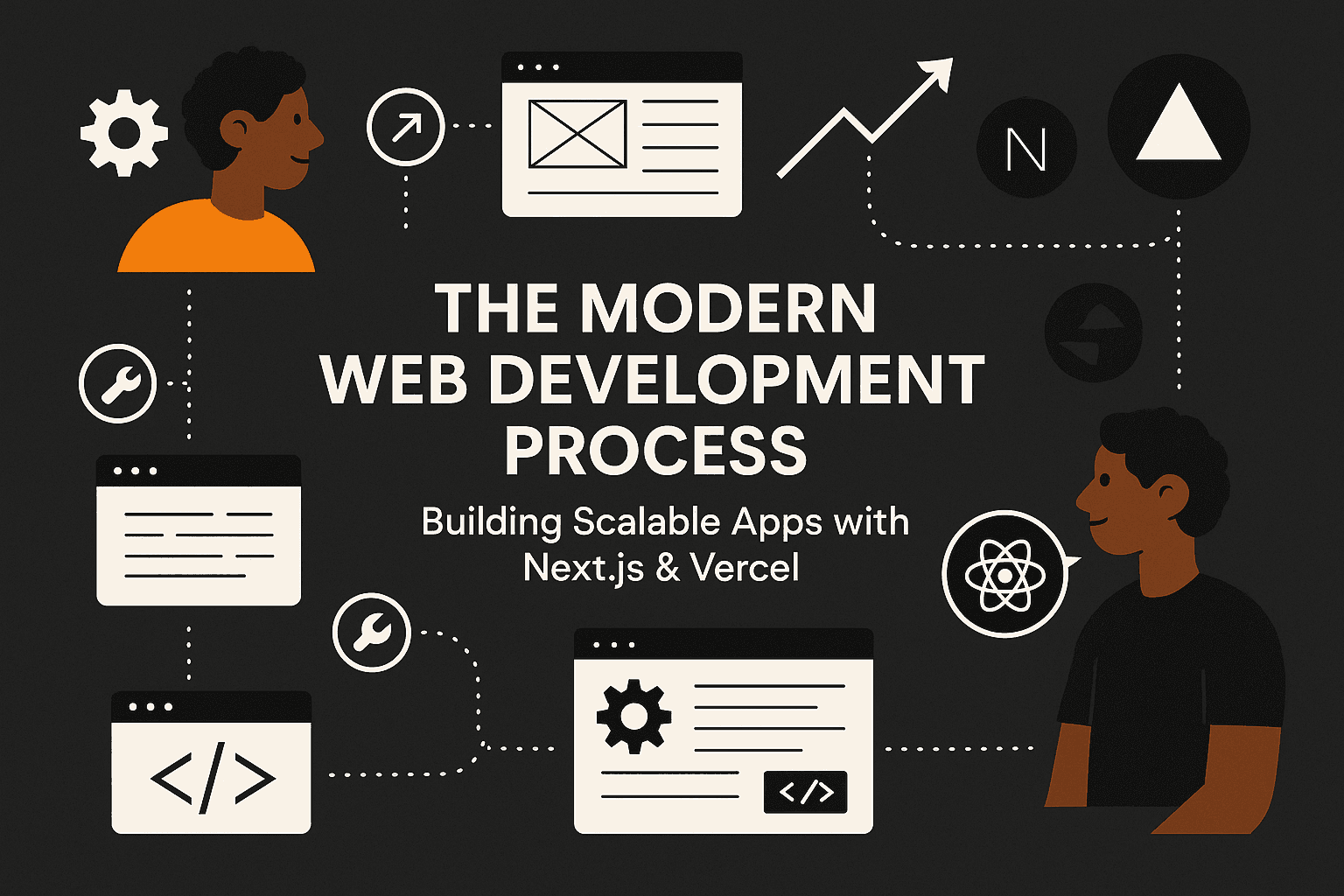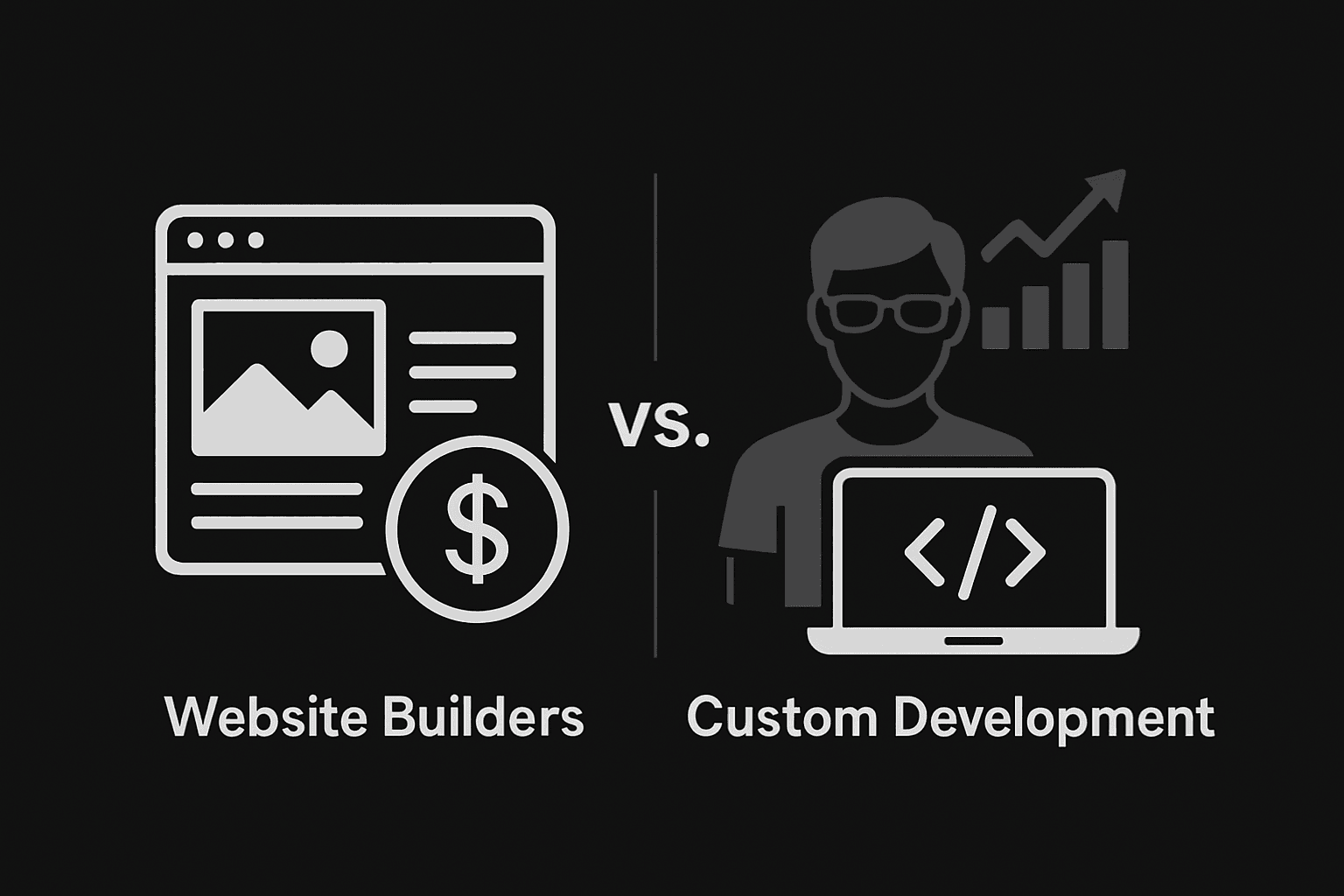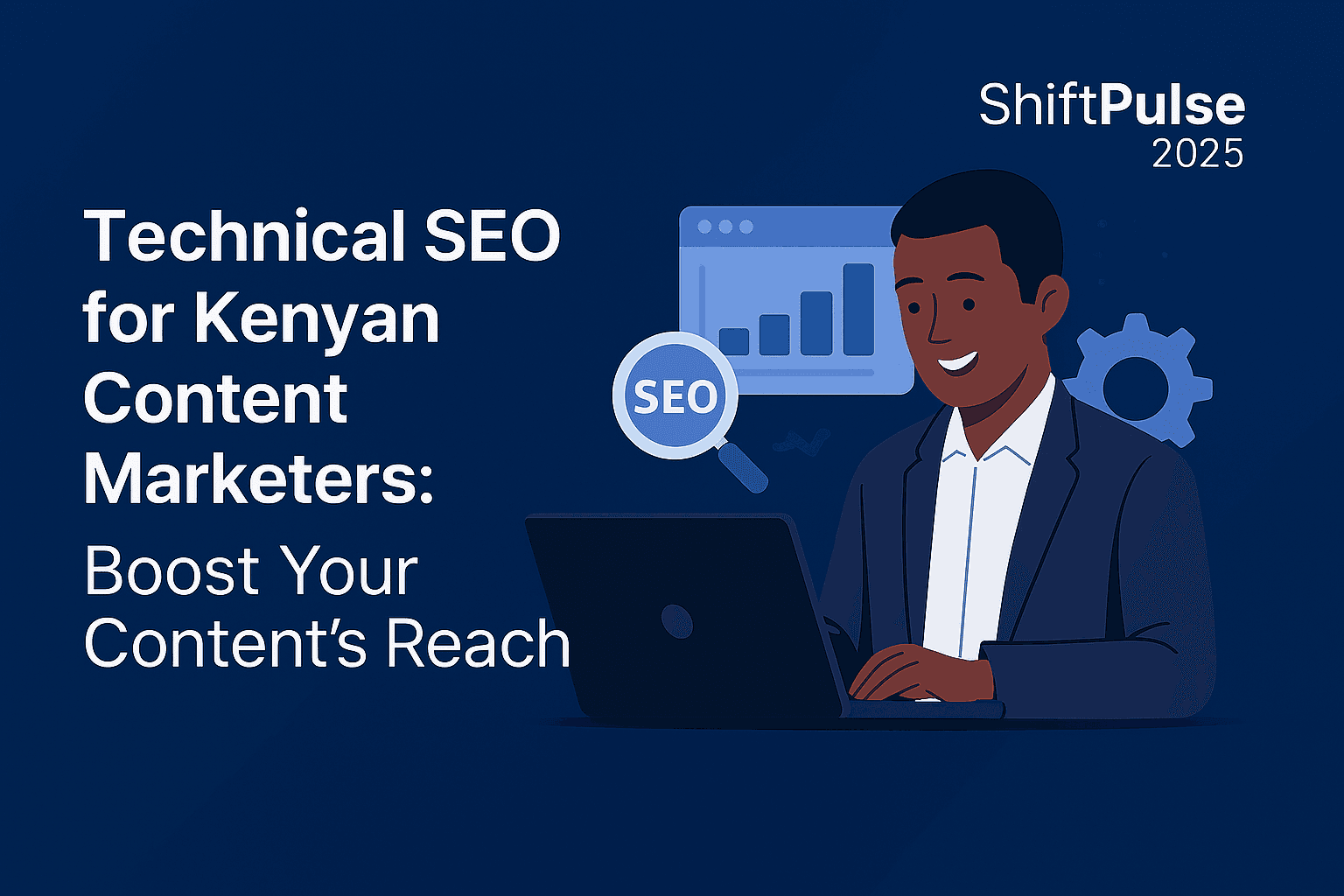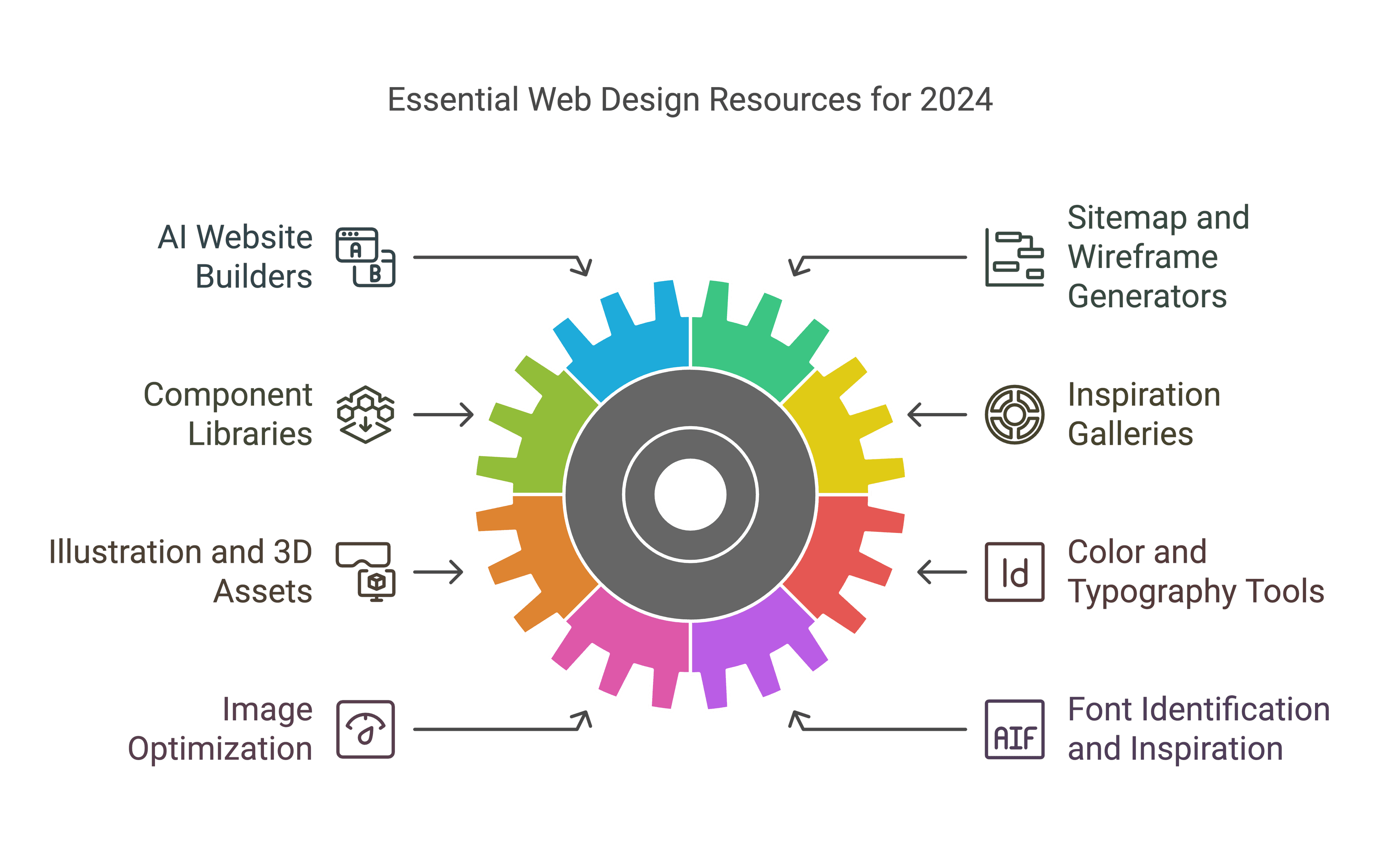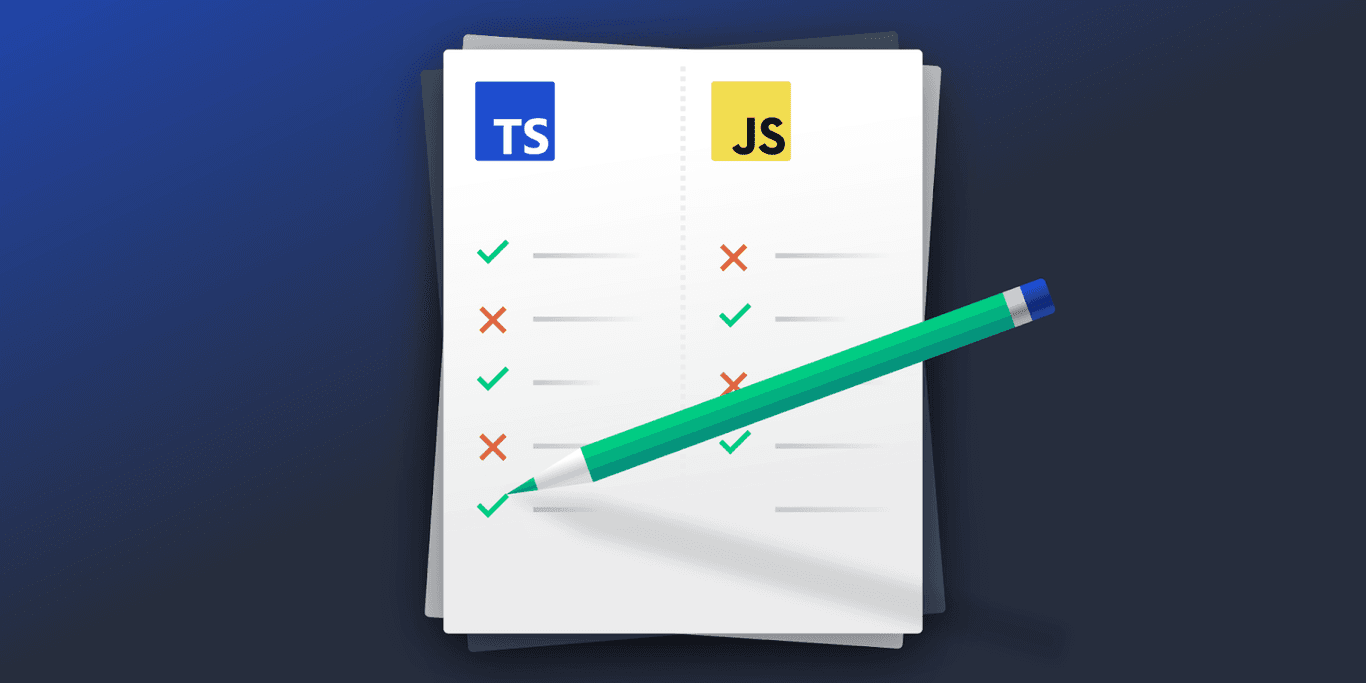
Ken Kariuki
Shiftpulse Marketers
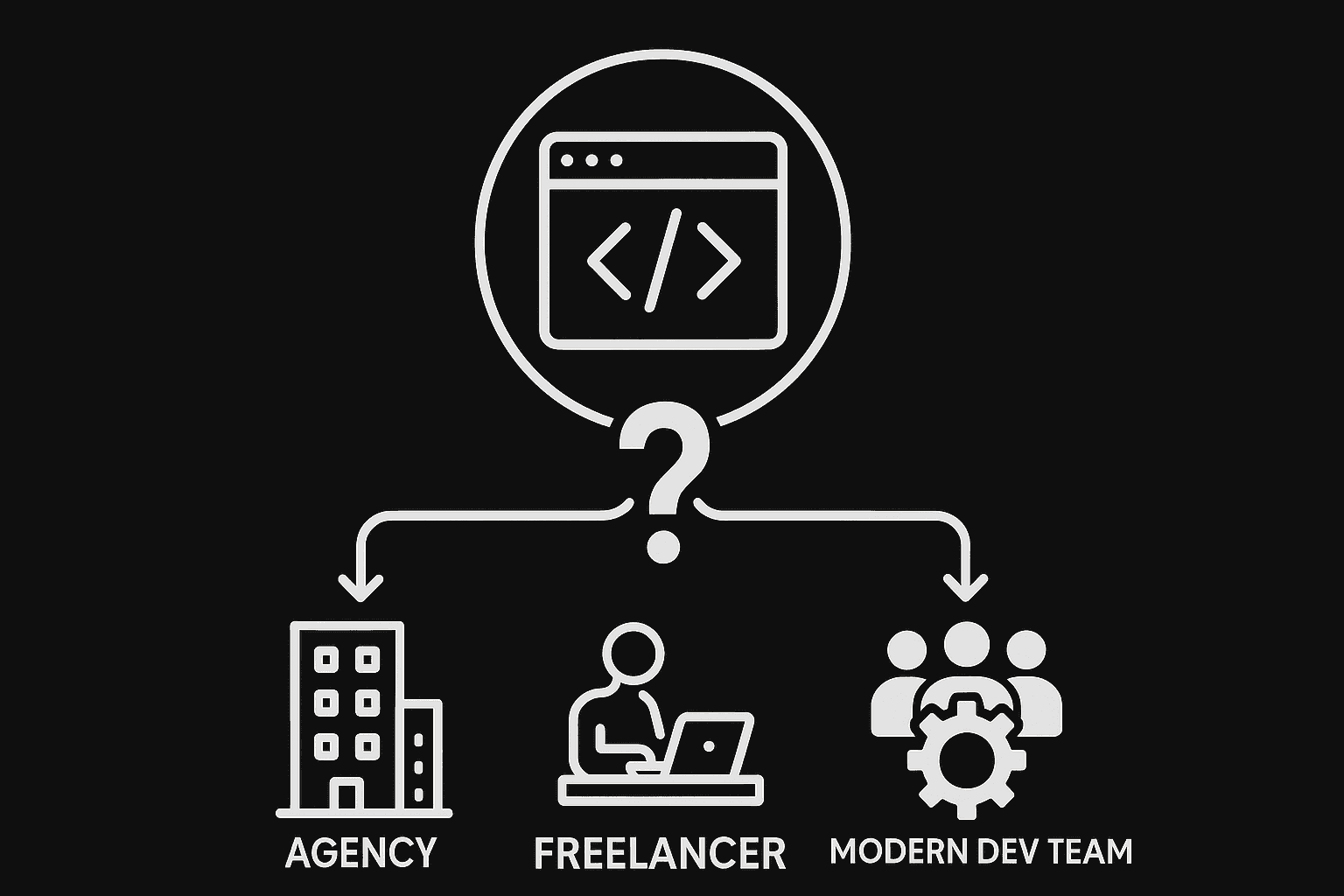
Choosing Your Web Development Partner in Kenya (2025): Agency, Freelancer, or Modern Dev Team?
TL;DR
Kenyan businesses have three main options for building websites: freelancers (affordable but limited), digital agencies (costly but comprehensive), or modern dev teams (tech-savvy and balanced). Website projects usually cost between KSh 20K–100K. Trends for 2025 highlight AI tools, SEO, Core Web Vitals, and local SEO.
A Quick Overview for Kenyan Businesses:
Choosing how to build your website in Kenya involves considering three main paths: a full-service digital marketing agency, an independent freelance web developer, or a modern development team (which could be a specialized small agency or a remote-first team). Each option presents different trade-offs regarding cost, skill sets, and reliability.
Freelancers often offer lower costs and flexibility. However, agencies typically provide broader expertise, including vital areas like Search Engine Optimization (SEO) and ensuring compliance with Kenyan regulations like the Data Protection Act (2019), along with greater stability. Modern dev teams, frequently leveraging technologies like React and Next.js, aim to blend agility with a diverse team skill set.
As a starting point, ShiftPulse observes that basic website projects in Kenya often begin in the range of KSh 20,000–KSh 100,000 (approximately US$150–US$800). Key 2025 trends, such as AI-assisted development tools, the critical importance of Google's Core Web Vitals (site speed and responsiveness), and the rise of personalized search (local SEO), mean that website performance and expert SEO are more crucial than ever. When evaluating potential partners, always meticulously review their portfolios, seek client testimonials, and assess their communication style.
(ShiftPulse Note: This article aims to guide your decision-making process. While we are a full-service agency, our goal here is to provide balanced insights to help you choose the best fit for your specific needs.)
Why a Strong Online Presence is Vital for Kenyan Businesses in 2025
Kenya’s digital economy is undeniably booming. Nairobi, often dubbed the “Silicon Savannah,” is a testament to this, and recent reports (e.g., Statista, 2024) indicate Kenya is a leading e-commerce market in Africa. Projections for online shopping revenue continue to climb, with millions of Kenyans actively engaging in online commerce. This significant growth is supported by forward-thinking government digital-economy policies and the ubiquitous adoption of mobile money solutions like M-Pesa.
What this means in practical terms is that Kenyan consumers are increasingly discovering and evaluating products and services via Google searches and social media platforms. To capture this audience and win their trust, your business website Kenya must be fast, mobile-friendly, secure, and intuitive. Modern development frameworks like React and Next.js (both JavaScript-based) are increasingly common in Kenya for building such interactive, SEO-friendly sites. At ShiftPulse, we leverage these technologies to build high-performing websites designed and developed to meet these modern demands.
In this dynamic landscape, businesses of all sizes – from vibrant Nairobi startups to essential county services – require an effective and professional online presence. Your choice of web development partner will significantly impact how well your site adheres to crucial technical standards, like Google’s Core Web Vitals (which prioritize fast loading, layout stability, and quick interactivity), and critical legal requirements, such as data privacy under the Kenyan Data Protection Act. Let’s compare your primary options.
Your Web Development Options in Kenya: Agency, Freelancer, or Modern Dev Team
1. Full-Service Web Development Agencies
These are established companies, often based in major hubs like Nairobi, with in-house teams comprising designers, developers, marketers, and project managers. Agencies typically provide comprehensive, end-to-end services: from initial digital strategy and custom branding to design, development, content marketing, SEO, and ongoing support and maintenance.
Agencies usually have well-defined processes, extensive portfolios across various industries (e.g., finance, legal, hospitality, e-commerce), and the capacity to handle complex projects. Due to their operational overhead and depth of expertise, agencies generally represent a higher investment. However, they also offer greater reliability and can manage multifaceted legal compliance aspects (like crafting DPA-compliant privacy policies) and rigorous quality assurance.
- Pros: Broad skill set under one roof (design, development, SEO, legal awareness), structured project management, reliability for larger or more complex projects, ongoing support capacity.
- Cons: Higher cost compared to other options, potentially longer project timelines due to structured processes.
(ShiftPulse Insight: Reputable agencies in Kenya often hold certifications in various digital disciplines and can showcase a portfolio of successful projects with measurable results, demonstrating their E-E-A-T – Experience, Expertise, Authoritativeness, and Trustworthiness. For example, at ShiftPulse, our team holds certifications in SEO, Content Marketing, and Social Media, and we pride ourselves on a track record of serving hundreds of Kenyan businesses, detailed in our portfolio.)
2. Freelance Web Developers in Kenya
Freelancers are independent contractors, often working remotely or from co-working spaces. They can be a very affordable option and can deliver quickly on smaller, well-defined projects. A skilled Kenyan freelancer proficient in relevant technologies (even modern frameworks like React) can build a basic company website at a competitive price point. As mentioned, simple sites can start in the KSh 20,000–KSh 100,000 range.
- Pros: Lower cost (no agency overhead), direct communication with the developer, often greater flexibility on project scope and timelines for small tasks.
- Cons: Limited bandwidth (a single individual), potentially variable reliability, risk if the freelancer becomes unavailable (e.g., due to illness or other commitments). Freelancers may also not offer comprehensive services like ongoing marketing, advanced SEO, or in-depth legal compliance support beyond the initial build.
3. Modern Development Teams
This category encompasses small, specialized teams or agile, often part-remote groups. These might be local tech startups or even offshore teams with Kenyan leadership or strong ties to the local market. They typically emphasize agile development methodologies, leverage the latest technology stacks (such as Next.js, React, Node.js for full-stack capabilities), and focus on rapid iterations.
Such teams can offer a compelling blend of freelancer agility and agency-level skills, bringing multiple experts to a project while often remaining more affordable than larger, traditional agencies. Many Kenyan tech initiatives and incubator programs are fostering these kinds of dynamic teams.
- Pros: Access to specialized, up-to-date technical talent; often more scalable and reliable than a solo freelancer; generally more cost-effective than large agencies.
- Cons: Can be less established than traditional agencies; communication might be primarily digital if the team is distributed, requiring clear protocols.
Making Your Choice:
- If you have a limited budget or a relatively simple website requirement (e.g., a basic informational or brochure site), a skilled freelancer or a small, modern dev team could be an excellent fit. Expect initial costs for a small business site to be roughly in the KSh 50,000–KSh 100,000 range. Agencies might quote KSh 100,000+ for more comprehensive features and strategic input.
- For complex projects – such as sophisticated e-commerce stores with M-Pesa integration, fintech platforms, or websites for regulated industries like legal firms requiring stringent DPA compliance – a full-service agency or a well-coordinated modern dev team is generally a safer choice. They are better equipped to handle not just the coding but also critical aspects like security architecture, scalability planning, and ongoing Search Engine Optimization (SEO).
- For projects where speed and flexibility are paramount for a specific task, a talented freelancer can be ideal. However, ShiftPulse advises thoroughly checking their references and ensuring they can realistically meet your timeline and quality expectations.
- When hiring any web partner, meticulously evaluate their portfolio and client reviews. Check if they have experience building websites similar to your needs (e.g., search for "Next.js development Kenya" or "React developer Kenya" to assess their proficiency in modern stacks if required). A credible partner will readily share client work and ideally, case studies or testimonials. Enquire about their development process: How do they test for performance (Core Web Vitals)? How do they ensure data privacy and security?
Cost, Skills, and Fit: A Practical Comparison for Kenyan Businesses
- Experience & Portfolio: Look for proven, relevant experience. Agencies often highlight industry certifications (e.g., Google Partner, HubSpot Certified) and notable client projects. Freelancers might showcase fewer, but potentially more specialized, projects. Modern teams could feature innovative apps or successful startup launches they've contributed to.
- Technology Stack: If your project demands a modern, fast, and interactive website, specifically ask about skills in frameworks like React or Next.js. For simpler sites, platforms like WordPress or traditional PHP development might suffice. Clarify your needs: "Can I hire a React developer in Kenya on your team, or someone with proven Next.js experience?" Many skilled Kenyan developers and agencies, including ShiftPulse, advertise these capabilities. Utilizing modern tech often translates to better performance and enhanced SEO capabilities (e.g., through server-side rendering).
- Communication: Nairobi-based agencies typically operate during standard business hours, while freelancers may offer more flexible communication times. Ensure clarity on language (English is widely used professionally in Kenya) and responsiveness, especially if considering remote teams across different time zones.
- Cost Estimate: Agencies may propose project-based or fixed-price contracts. Freelancers sometimes work on a day-rate basis (Kenyan developers might charge between KSh 5,000–KSh 15,000 per day, depending on experience and complexity). As noted, a basic 5-page responsive website in Kenya can start from KSh 50,000–KSh 100,000. E-commerce sites or custom web applications can run into several hundred thousand shillings or more. Always obtain a clear, itemized quote. Remember to budget for additional costs like domain registration (approx. KSh 1,000–KSh 1,500 per year), web hosting, SSL certificates, and potential ongoing maintenance. ShiftPulse recommends getting detailed quotes that outline all inclusions.
- Long-term Support & Maintenance: Clarify if the initial quote includes post-launch updates or maintenance. Agencies typically offer ongoing support plans (covering security updates, backups, minor changes). Freelancers might charge an hourly rate for subsequent work. Decide your post-launch support needs early on.
- Location and Cultural Understanding: While many Nairobi firms offer excellent services, some clients (e.g., government entities or businesses requiring deep local nuance) may prefer a partner with a strong local presence. Local agencies are often well-versed in Kenyan market trends, consumer behavior, and specific regulatory environments. However, talent is increasingly global. Some Kenyan businesses successfully collaborate with remote developers across Africa or beyond for specialized skills, but robust communication strategies are key.
Legal & Technical Must-Haves for Your Kenyan Website in 2025
Data Protection & Privacy (Kenya Data Protection Act, 2019)
Kenya’s Data Protection Act (2019) (DPA) is a critical piece of legislation enshrining data privacy rights. Any website collecting personal data (names, email addresses, phone numbers, payment information) from Kenyan residents mustobtain explicit, informed consent and clearly explain how this data will be used and protected. For a deeper dive, see ShiftPulse's guide to navigating digital marketing regulations in Kenya.
Practically, this means your website needs:
- A clear, comprehensive, and easily accessible Privacy Policy.
- Opt-in forms (no pre-checked boxes) for newsletters or marketing communications.
- Robust data security measures. An HTTPS/SSL certificate is mandatory; browsers flag unsecured sites, which severely damages user trust and SEO.
- To consider registering with the Office of the Data Protection Commissioner (ODPC) if you process large volumes or sensitive categories of personal data.
Your web partner should be knowledgeable about these DPA requirements and guide you on compliance. Reputable agencies usually have processes to address this; with freelancers, you may need to specifically request this support.
Copyright & Branding
Ensure all images, text, and other media used on your website are properly licensed. Utilize Royalty-Free or Creative Commons resources correctly, attributing where necessary. Avoid using copyrighted stock photography or content without explicit permission. Choose a partner who respects and can accurately implement your brand guidelines (voice, tone, color palettes, logo usage).
Search Engine Optimization (SEO)
Voice search, AI-driven search (like Google's SGE), and personalization are increasingly shaping how users find information. Google tailors results based on location and user history. Therefore, effective local SEO is vital. This includes incorporating relevant local keywords (e.g., "website design Nairobi," "hire web developer Kenya," "best digital marketing agency Kiambu") naturally into your website content, page titles, and meta descriptions.
A competent developer or agency will optimize your site’s content structure (logical headings, mobile-first layout, fast load times) and may use tools like Google PageSpeed Insights to benchmark performance. Google's Core Web Vitals(measuring load speed, interactivity, and visual stability) are direct ranking factors. Always ask your potential partner, “How will you ensure my site performs well on mobile speed tests and meets Core Web Vitals standards?” If necessary, insist on image optimization, browser caching, and script minimization to achieve fast loading times.
Local Content and Branding
For audiences in Nairobi, Mombasa, Kisumu, and across Kenya, local context is key. Use Swahili or local colloquialisms (Sheng) strategically and authentically if appropriate for your target audience. Ensure your contact details (physical address if applicable, phone numbers) are accurate and easily accessible. An SEO-savvy partner might also assist with setting up or optimizing your Google Business Profile and listings in relevant Kenyan online directories to enhance local search visibility.
Emerging Web Development Trends in Kenya for 2025
- AI Tools in Development: Many Kenyan agencies and developers are now using AI-powered assistants (like GitHub Copilot for coding, or AI models for generating content drafts and images) to enhance efficiency. These tools can potentially reduce costs and shorten project timelines, but human oversight and quality control remain paramount. Ask your potential partner if and how they utilize AI, and what processes they have to ensure accuracy and customization. ShiftPulse explores using AI for SME marketing, including image generation.
- Focus on Core Web Vitals: As emphasized, Google's 2025 focus on page experience means every web partner must prioritize and test for fast loading times (Largest Contentful Paint - LCP), interactivity (First Input Delay - FID, or Interaction to Next Paint - INP), and visual stability (Cumulative Layout Shift - CLS). A slow website (e.g., loading over 3 seconds) will deter visitors and rank poorly.
- Personalization & Analytics: Businesses are increasingly using data to personalize user experiences (e.g., tailored product recommendations, localized content). Ensure your website integrates robust analytics (Google Analytics 4, or privacy-focused alternatives) to track user behavior and inform your strategy. ShiftPulse can help you with advanced analytics and conversion rate optimization.
- Growth Sectors: E-commerce, fintech, education technology (EdTech), and health technology (HealthTech) are experiencing significant growth in Kenya. If your business operates in one of these sectors, seek a partner with demonstrable, relevant project experience. For instance, integrations with M-Pesa, secure online banking portals, or interactive e-learning platforms each have unique technical and user experience demands.
- Design Trends: Expect a continued emphasis on clean, minimal, mobile-first designs, along with more interactive elements like AI-powered chatbots (custom GPT services are becoming popular), dynamic forms, and engaging micro-interactions. Strong branding remains crucial; Kenyan users often respond well to familiar yet modern aesthetics that incorporate vibrant colors, authentic imagery, and clear, concise messaging.
How to Hire Your Web Partner in Kenya: A Step-by-Step Guide
Define Your Needs First: Before approaching any potential partner, clearly outline what your website must achieve (e.g., informational brochure site, online store, booking system, lead generation hub). Establish a realistic budget (e.g., starting around KSh 50,000–KSh 100,000 for more modest sites, and scaling up based on complexity) and a desired timeline.
Search Locally and Online: Use targeted keywords like “web development company Kenya,” “hire web developer Kenya,” “digital marketing agency Nairobi,” or “Next.js developer Kenya” on search engines. Explore LinkedIn, local tech community forums, and business directories. Don't underestimate the power of referrals from trusted peers in your network.
Evaluate Portfolios Thoroughly: Request to see live examples of websites they’ve built, ideally for businesses similar to yours or in your industry. Assess their modernity, professionalism, and user-friendliness. Critically, test their loading speed and mobile responsiveness yourself (tools like Google’s Mobile-Friendly Test can assist).
Check Reviews and Assess Communication: If possible, seek feedback from their past clients. During initial consultations and proposal stages, pay close attention to how clearly and promptly they communicate. Do they ask insightful questions about your business goals and target audience? Professional partners will typically have a transparent process and provide detailed, written proposals.
Ask the Right Questions: Prepare a list of pertinent questions. For example: “How will you ensure my website is secure, fast, and DPA-compliant? What is your process for QA testing? Do you offer post-launch support and maintenance, and what does that entail? How do you approach SEO for Kenyan businesses?” Their answers will reveal their depth of expertise and approach.
Compare Quotes and Contracts Carefully: Don’t automatically opt for the cheapest offer. Ensure the scope of work (number of pages, specific features, revisions included) is clearly detailed. Contracts should specify project timelines, payment milestones and terms (including Kenyan VAT if applicable), and intellectual property rights (you should own the final website code and content).
Consider a Trial Task (Optional): For freelancers or smaller teams, you might propose a small, paid trial task (e.g., designing a landing page or developing a specific module) to evaluate their work quality and collaboration style before committing to the full project.
If you're finding this initial assessment overwhelming, ShiftPulse offers consulting services to help you define your website needs and even assist in evaluating technical proposals.
Summary: Making the Right Choice for Your Kenyan Business
In Kenya's rapidly expanding digital market, a high-performing website is an indispensable asset. Whether you ultimately choose a full-service agency, a skilled freelancer, or an agile modern dev team, the decision should be tailored to your project’s complexity, specific needs, and budget.
Remember to prioritize legal compliance (especially with the Data Protection Act), embrace current technical best practices (such as those for Next.js development and Core Web Vitals), and understand the importance of local SEO (using relevant keywords like “website design Nairobi” or “digital solutions Kenya”). A well-chosen web partner will be instrumental in guiding you through these critical details and delivering a website that truly works for your business.
Start by meticulously outlining your goals and budget, then solicit proposals from at least two or three different sources. Verify that your chosen partner genuinely understands Kenyan business culture, consumer behavior, and the local regulatory environment. By conducting thorough due diligence and asking insightful questions, you will be well-positioned to find a web development partner who can help your Kenya-based business not just compete, but thrive online in 2025 and beyond.
Voice Search FAQs (2025) for Kenyan Businesses
- How much does it cost to build a website in Kenya? Simple business websites in Kenya typically start from around KSh 50,000–KSh 100,000 (approx. US$350–US$700). The final cost depends on the number of pages, required features (e.g., e-commerce, booking systems), and design complexity. Custom portals or highly sophisticated sites will cost more. Always request detailed, itemized quotes.
- Agency vs. freelance web developer in Kenya – which is better for my business? This depends on your specific needs and resources. Agencies (often found in Nairobi and other major towns) typically offer comprehensive services, greater reliability, and ongoing support, but usually at a higher cost. Freelancers can be more affordable and quicker for smaller, well-defined jobs but may not cover all service aspects like advanced SEO or legal compliance. ShiftPulse advises comparing their skills, portfolios, and client feedback before deciding.
- What is Next.js development, and do I need it for my Kenyan website? Next.js is a popular web development framework built on React (a JavaScript library). It is renowned for enabling the creation of fast, SEO-friendly, and interactive websites, often utilizing server-side rendering for better performance. If you're aiming for a modern, high-performance website – particularly for blogs, e-commerce platforms, or web applications – hiring a Next.js or React developer in Kenya can be highly beneficial. It's a favored technology among Kenyan startups and businesses looking for dynamic online experiences. ShiftPulse leverages Next.js for many client projects.
- How do I find a reliable web development company in Kenya? Search online using terms like “web development company Kenya,” “website design Nairobi,” or “best digital agency Kenya.” Carefully review their portfolios, case studies, and client testimonials. Ask for referrals from your professional network. Established Nairobi-based agencies often have more formal processes and broader teams, but also consider experienced freelancers or smaller dev teams if your budget or project scope is more modest.
- What are the key legal requirements for a Kenyan website in 2025? The Kenya Data Protection Act (2019) is paramount. It mandates that you inform users and obtain their explicit consent before collecting any personal data. Ensure your website has a clear Privacy Policy, uses secure hosting (HTTPS is a must), and implements compliant cookie consent mechanisms. Also, respect copyright for all images and content. ShiftPulse can offer consultation on aligning your website with these requirements.
- Why is website speed (Core Web Vitals) so important in 2025? Google now uses Core Web Vitals – metrics measuring page load speed (LCP), interactivity (FID/INP), and layout stability (CLS) – as significant ranking factors. Kenyan users, often Browse on mobile networks, have high expectations for speed; a slow website will lead to high bounce rates and lost opportunities. Your chosen developer or agency must optimize your site (e.g., compress images, leverage browser caching, minimize code) to meet these standards.
- Should I consider a web partner who uses AI tools? Many modern web development teams and agencies in Kenya utilize AI coding assistants, design tools, or content generation aids to improve efficiency and speed up development. This can be advantageous if it translates to lower costs or faster turnaround times. However, human expertise and quality control are still essential. Discuss with your potential partner how they employ AI tools (e.g., for testing, initial drafts, image creation) and what measures they take to ensure the final website is tailored, accurate, and meets your unique business needs.
